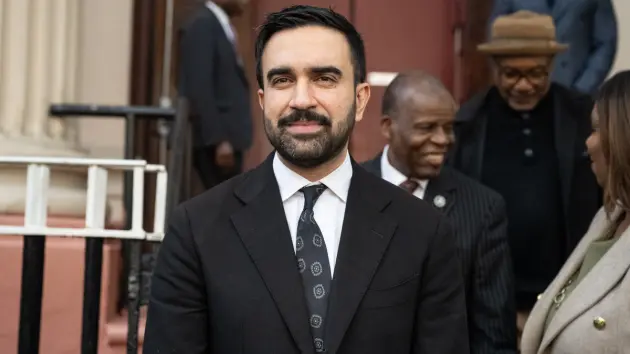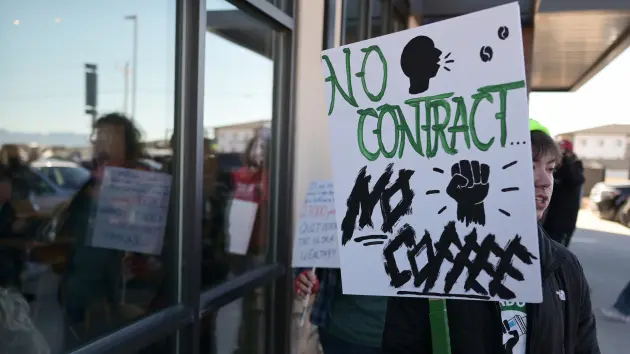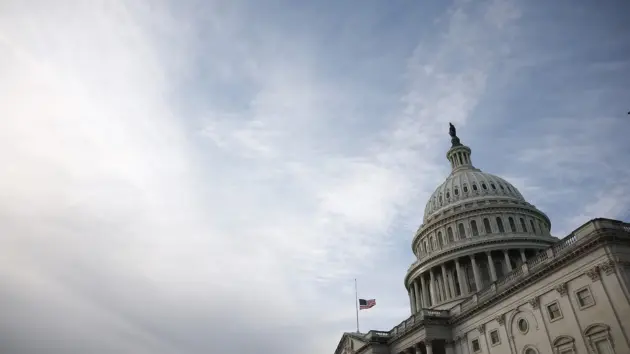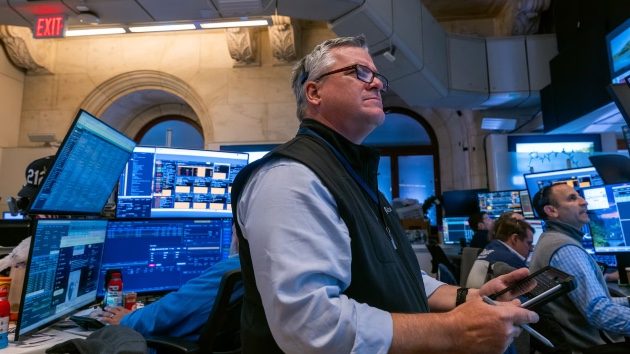
(NEW YORK) — New York City Mayor-elect Zohran Mamdani, a democratic socialist who says he wants to hike taxes on the rich, set off alarm among some critics about a potential exodus of wealthy people bent on keeping their money out of government coffers.
As the warning goes, a tax increase at the top could drive away affluent New Yorkers and undercut revenue meant to fund proposals like universal child care, free city buses and publicly owned grocery stores.
John Catsimatidis, the billionaire owner of grocery chain Gristedes, told the Free Press in June he may “consider closing our supermarkets and selling the business” in the event of a Mamdani victory. Neil Blumenthal, the co-founder and co-C.E.O of eyewear company Warby Parker, said, “I will never move from New York, but there’s a lot of other people that will and are leaving New York.”
Even Democratic New York Gov. Kathy Hochul, who ultimately endorsed Mamdani, warned in an interview in June about the possible departure of the wealthy set. “I don’t want to lose any more people to Palm Beach,” Hochul told local outlet PIX 11, underscoring her opposition to a tax increase.
Studies show a race for the exits of this type is highly unlikely, experts at Northwestern University, as well as research organizations the EU Tax Observatory and the Tax Foundation, told ABC News.
Similar tax increases in states like California have typically pushed out a small number of wealthy people, the experts said, but the vast majority stay put for reasons that hold true across income brackets: They like where they live, and want to remain close to friends, family and professional networks.
“There is tax-induced mobility. It’s not non-existent but it’s very small,” Quentin Parinello, policy director at the Northwestern University as well as research organizations the EU Tax Observatory and the Tax Foundation, told ABC News.
“In New York and other big metropolises, people want to be somewhere they can go to the theater, they can have business opportunities, they can hire talent,” Parinello added.
Mamdani says he will put forward a 2 percentage point tax increase for residents making more than $1 million, which would raise the tax rate for high earners in New York City from roughly 3.9% to 5.9%.
The mayor-elect has also proposed hiking the corporate tax rate from 7.5% to 11.5%, which would put New York in a tie with New Jersey for the highest state corporate tax rate nationwide.
“These things together raise about $9 billion, which more than pays for our economic agenda,” Mamdani told ABC’s “Good Morning America” this month.
When asked whether he is concerned the taxes could drive job creators out of New York, Mamdani said: “What I’ve heard from a number of business leaders is that the affordability crisis is also affecting their ability to attract and retain talent. The city’s inability to provide child care means that businesses often have to provide stipends for that child care.”
Both tax measures would require state legislation bearing Hochul’s signature.
Studies from researchers at Stanford University, the Treasury Department and the non-partisan Fiscal Policy Institute show minimal departures among the rich in response to tax increases.
Researchers at Stanford University and the Treasury Department in 2016 examined tax records belonging to all million-dollar earners in the U.S. over a 13-year period, finding “tax flight is occurring but only at the margins of statistical and socioeconomic significance.”
In 2023, the Fiscal Policy Institute examined movement among high earners in the aftermath of a New York state income tax hike two years earlier.
“There is no statistically significant evidence of tax migration in New York,” the study found.
“Movement of rich people on the basis of tax differentials is relatively small,” Jeffrey Winters, a professor of equality development and globalization studies at Northwestern University who studies high earners, told ABC News. “It’s very common for them to threaten to move. The risk is grossly overstated.”
Jared Walczak, vice president of state projects at the non-partisan Tax Foundation, voiced opposition to Mamdani’s proposed tax hike, saying the policy risks a gradual erosion in the high-earner tax base and revenue losses that would accumulate over time.
“The city won’t empty out if taxes rise, but on the margin you expect some people to move,” Walczak told ABC News.
“That hurts the city and the state because these individuals are already paying a lot of taxes and creating a lot of jobs,” Walczak added.
Winters, of Northwestern University, said the focus on wealthy residents risks overlooking the cost-of-living challenges that force low- and middle-income New Yorkers to move elsewhere.
“We are worried about the outflow of the very wealthiest people in major cities like New York when in fact the biggest outflow of people is among those who can’t afford even the basics of staying there,” Winters said.
Copyright © 2025, ABC Audio. All rights reserved.





